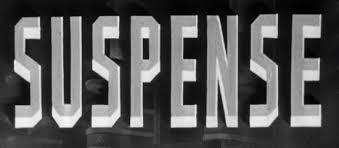中文词源
suspense 悬念,焦虑
suspend,悬,挂,吊,-s,过去分词格。引申词义悬念,焦虑等。
英语词源
- suspense (n.)
- c. 1400, "abeyance, temporary cessation; state of not being carried out" (of legal matters), from Anglo-French suspens (in en suspens "in abeyance," c. 1300), Old French sospense "delay, deferment (of judgement), act of suspending," from Latin suspensus, past participle of suspendere "to hang up; interrupt" (see suspend). Meaning "state of mental uncertainty with more or less anxiety" (mid-15c.) is from legal meaning, perhaps via notion of "awaiting an expected decision," or from "state of having the mind or thoughts suspended." As a genre of novels, stories, etc., attested from 1951.
权威例句
- 1. "Go on, don't leave us in suspense," Dennis said.
- 丹尼斯说:“接着说,别吊我们胃口了。”
- 2. a tale of mystery and suspense
- 一个神秘莫测、充满悬念的故事
- 3. The director used ingenious devices to keep the audience in suspense.
- 导演用巧妙手法引起观众的悬念.
- 4. The suspense was unbearable.
- 这样提心吊胆的状况实在叫人受不了.
- 5. Keppler kept all his men in suspense until that morning before announcing which two would be going.
- 开普勒让所有的下属都焦急地等待着,直到那天上午才宣布哪两个人去。

